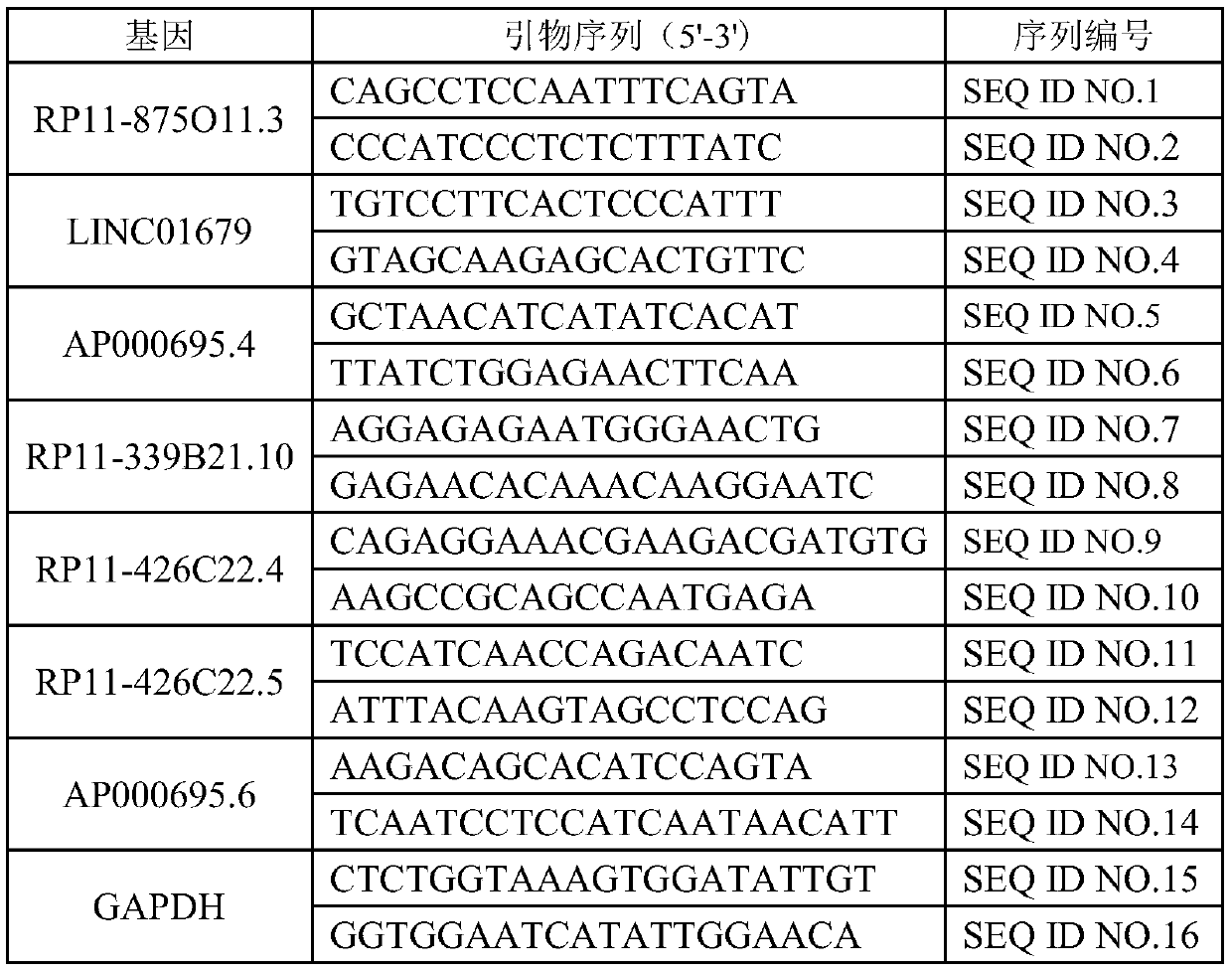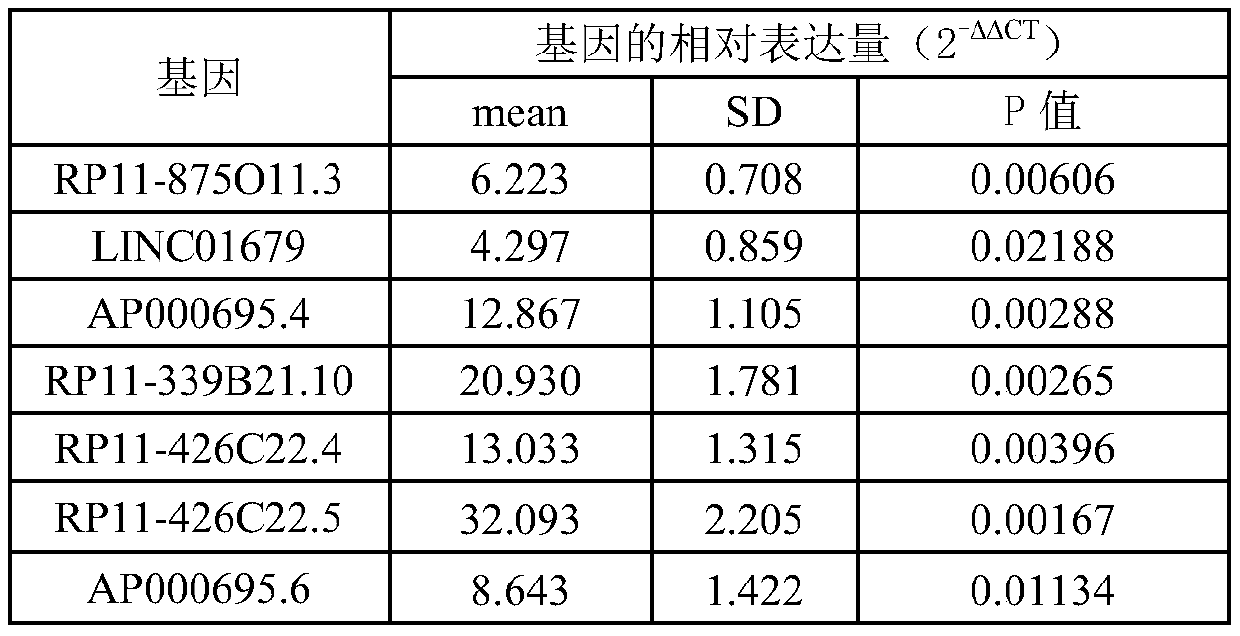Related biomarker for diagnosing and treating oral squamous cell carcinoma and application thereof
A technique for oral and squamous cell carcinoma, applied in the field of biomedicine, which can solve the problems of restricting the scope of operation, high incidence of cervical lymph node metastasis and invasion, and poor prognosis.
- Summary
- Abstract
- Description
- Claims
- Application Information
AI Technical Summary
Problems solved by technology
Method used
Image
Examples
Embodiment 1
[0067] Example 1 QPCR detection of differential expression of lncRNA
[0068] 1. Collect 33 cases of surrounding normal mucosa tissue and oral squamous cell carcinoma tissue, all of which were confirmed by pathological diagnosis, and all patients did not receive any form of treatment before operation. Surgical excised samples were frozen in liquid nitrogen.
[0069] 2. RNA extraction
[0070] Take out the tissue samples frozen in liquid nitrogen, put the tissue samples into a pre-cooled mortar for grinding, and extract and isolate RNA according to the instructions in the kit. details as follows:
[0071] 1) Add Trizol and place at room temperature for 5 minutes;
[0072] 2) Add 0.2ml of chloroform, vibrate the centrifuge tube vigorously, mix well, and place it at room temperature for 5-10min;
[0073] 3) Centrifuge at 12000rpm for 15min, transfer the upper aqueous phase to another new centrifuge tube (be careful not to absorb the protein material between the two aqueous ph...
Embodiment 2
[0098] Example 2 Silencing detection and functional verification of lncRNA
[0099] 1. Cell culture
[0100] Human oral squamous cell carcinoma SCC-15 cells stored in liquid nitrogen were taken out and inoculated in DMEM medium at 37°C, 5% CO 2 Cells were cultured in a constant temperature incubator. After 24 hours, the cells showed adherent growth and recovered. The medium was successfully changed every 1-2 days, digested with trypsin and made into a cell suspension for experiments.
[0101] 2. Cell transfection
[0102] Cells were divided into 2×10 5 Inoculate / well into six-well cell culture plates at 37°C, 5% CO 2 cultured in an incubator. Cells in the logarithmic phase of proliferation (about 80%) were discarded, washed twice with PBS, added 2 ml of DMEM and starved for 1 h in an incubator, using liposome transfection reagent 2000 (purchased from Invitrogen) For transfection, the specific operation was carried out according to the instructions. The experiment was di...
PUM
 Login to View More
Login to View More Abstract
Description
Claims
Application Information
 Login to View More
Login to View More - R&D
- Intellectual Property
- Life Sciences
- Materials
- Tech Scout
- Unparalleled Data Quality
- Higher Quality Content
- 60% Fewer Hallucinations
Browse by: Latest US Patents, China's latest patents, Technical Efficacy Thesaurus, Application Domain, Technology Topic, Popular Technical Reports.
© 2025 PatSnap. All rights reserved.Legal|Privacy policy|Modern Slavery Act Transparency Statement|Sitemap|About US| Contact US: help@patsnap.com



